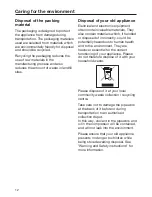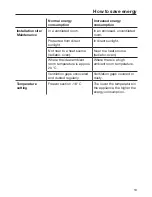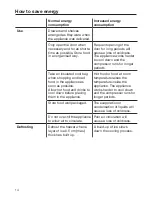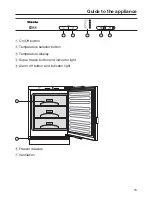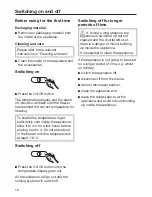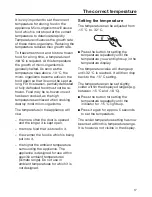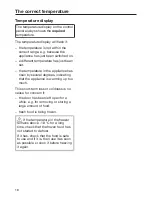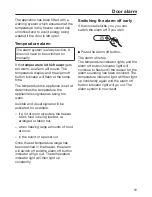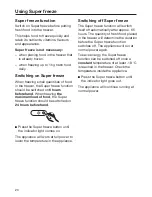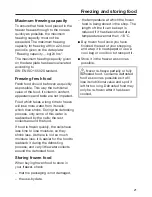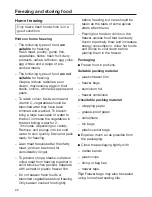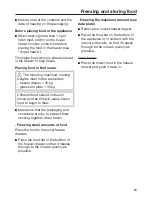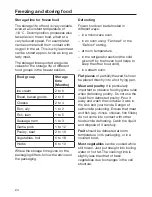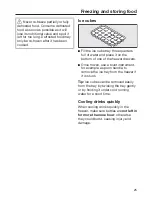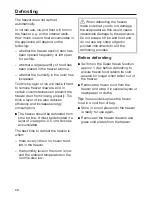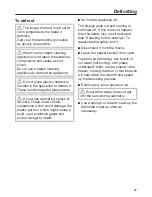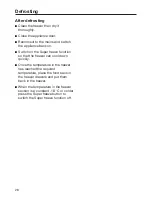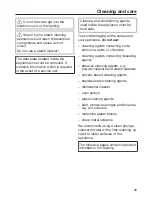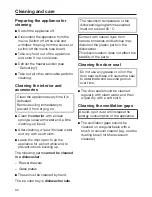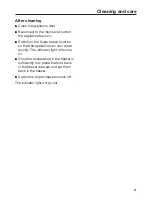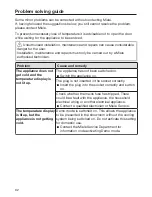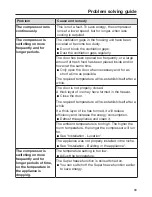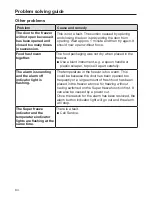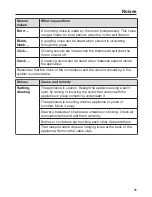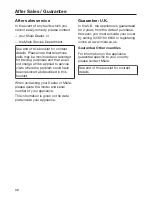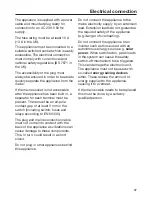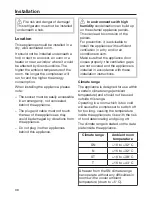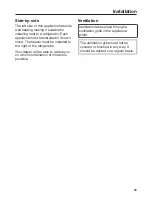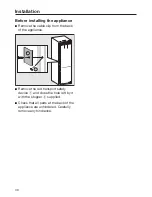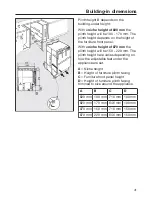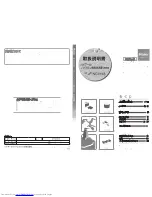
Defrosting
26
The freezer does not defrost
automatically.
In normal use, ice and frost will form in
the freezer, e.g. on the internal walls.
How much ice and frost accumulates in
the appliance will depend on the
following:
– whether the freezer section door has
been opened frequently or left open
for a while.
– whether a large quantity of food has
been placed in the freezer at once.
– whether the humidity in the room has
increased.
Too thick a layer of ice will make it hard
to remove freezer drawers, and in
certain circumstances can prevent the
freezer door from closing properly. Too
thick a layer of ice also reduces
efficiency and increases energy
consumption.
The freezer should be defrosted from
time to time. It must be defrosted if a
layer of ice approx. 0.5 cm thick has
accumulated.
The best time to defrost the freezer is
when:
– there is very little or no frozen food
left in the freezer,
– the humidity level in the room is low
and the ambient temperature in the
room is also low.
When defrosting the freezer
make sure that you do not damage
the evaporator as this would cause
irreversible damage to the appliance.
Do not scrape off ice and frost and
do not use any sharp edged or
pointed instruments to aid the
defrosting process.
Before defrosting
Switch on the Super freeze function
approx. 1 day before defrosting to
ensure frozen food retains its cold
reserve for longer when taken out of
the freezer.
Remove the frozen food from the
freezer and wrap it in several layers of
newspaper or cloths.
Tip:
You could also place the frozen
food in a cool box or bag.
Store in a cool place until the freezer
is ready for use again.
Remove all the freezer drawers and
glass cold plates from the freezer.
Summary of Contents for F9122Ui-2
Page 54: ......

